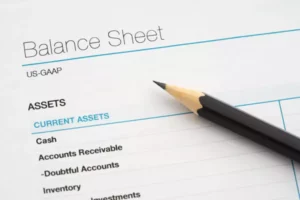Each enterprise has a division for collecting information about its assets and debts to third parties. It is engaged in the preparation of documented and systematized financial information. With the help of such information, the management makes verified decisions. The efficiency and success of the company’s management largely depend on the quality of the work of bookkeepers and accountants. Is there a difference between the duties and work of the bookkeeper vs accountant? Let’s try to answer this question.
- Bookkeeper
- Accountant
- Assists accountant, management, etc.
- Higher salary
- Records and classifies financial transactions
- More responsibility
- Balances business books
- Prepares financial reporting
- Processes payroll and calculates payroll deductions
- Analyzes, interprets, and provides advice based on financial data
- Takes care of sales and purchase invoices
- Tax planning and advising
- Typically do not file tax returns (except payroll and sales tax)
- Files tax returns for business and private individuals
- Completes bank and credit card reconciliation
- Auditing
- Can work without prior experience or official training
- Have at least a bachelors degree and many are CPAs
Bookkeeper
If you run a business, there are at least several things that you would want to know in regards to what is happening with your finances. You would want to know how much money a company makes in a given period, how much you spent to make that money, whether anybody owes you anything, whether you owe anybody money, and how much cash is coming in and out of the business. Taxpayers, investors, suppliers, and employees might want to know this information as well.
Someone has to track all of this. If you ask “What is a bookkeeper?”, we can say that this individual is the backbone of the business because, without one, all the upper-level workers will have no actual facts to base their decisions on. You might be very good at making money, but not very good with the paperwork, which is where a bookkeeper comes in. A bookkeeper is the one who documents the daily financial transactions of an organization. They are responsible for keeping track of the flow of money.
Bookkeepers oversee a company’s general ledgers and ensure it stays in compliance with various laws, rules, and regulations by maintaining accurate books on accounts payable and receivable, payroll, and daily financial entries and reconciliations, including reconciliation of cash and credit card sales against receipts. They might also be entrusted with answering the phone, directing calls, taking the messages, and following up on all calls needing attention.
Given the often time-consuming, yet tedious, tasks the bookkeeper has to perform and the need to do everything without a single mistake, even small and mid-size entities try to make this load lighter by acquiring some type of bookkeeping software (which the bookkeeper should know or be willing to learn how to use). Large enterprises typically have several bookkeepers in their accounting department and each one is responsible for different areas (tasks) of bookkeeping.
The work of the bookkeeper does not require any professional or undergraduate degree. Most bookkeepers simply take bookkeeping courses and learn on the job. Some choose to work from their home offices or work for accounting firms that provide bookkeeping services usually to small to mid-size businesses. Although being able to do basic math is necessary for a bookkeeper, it is not the most important skill. Besides the bookkeeping training, a bookkeeper should have the following skills to perform the job in the best possible way:
- Mathematical accuracy and attention to detail
- Analytical mind
- Strong communication skills
- Good organization and multitasking skills
- Willingness to keep learning.
Although the bookkeeper will probably not be able to help you plan your business finances for the next five years, they are great people to turn to if you want to know the day-to-day details of your business activities. Since they are closely working with the bookkeeping software, they can make better recommendations on what solutions are best for specific goals and, for example, what areas could use automation to make data collection more efficient and accurate.
Accountant
Accountants get to actually understand the company and see a broader aspect of what is happening in the business. It is not just debits and credits in terms of what is affecting the financial statements, but what actions are driving these changes.
A salary of an accountant is also what sets this job apart from the bookkeeper position. On average, the accountant makes about $55,000 a year and the best specialist can earn up to $95,000 a year. Professional qualifications (at least an undergraduate degree) and experience allow accountants to move up the career ladder and ask for a higher salary in comparison to other workers in the business. Along with the higher salary, accountants have more requirements to meet. What is an accountant responsible for?
First, let’s start by saying that, despite what it might look like, there is a big variety of different roles that accountants can have. For instance, you could be a controller accountant or you can work as an operational accountant. Accountants can also work in a financial planning department and do work that analysis the past and focuses more on the future rather than preparing financial statements on what has already happened. In this case, the accountant would prepare budgets and help management with the financial planning of business activities.
This all points out another advantage that a career as an accountant has. There is a benefit in being able to move horizontally within a business and even within a single department. Moreover, just like bookkeepers, accountants can work in a great variety of business spheres and industries. Employers, actually, often seek accountants that already have knowledge of the accounting specifics of their particular business.
No matter what size a company is, someone has to prepare its financial statements. Although smaller companies might have a bookkeeper fulfill this task or even have an accounting software automatically generate standard reports, neither bookkeeper nor the software has the necessary knowledge and experience to make sense of the numbers and catch any issues. This is where the accountant comes in.
Besides preparing the financial reports, which is a task a bookkeeper is not entrusted if it is a large enterprise, the accountant helps the management to analyze all the financial reports. The analysis along with the calculation of different financial ratios helps the management and owners to lead the business in the right direction.
The accountant helps the management to estimate the financial effect of any action, such as expansion, purchase of new equipment, or cutting down of a number of production lines, on the overall business state. In addition, professional financial reporting means that any external users will look at the business as one worth consideration.
Taxes is another area accountants help businesses and private individuals with. Besides filing tax returns, they know all the possible deductions, tax shortcuts, and ways to help businesses and individuals to save on tax payments. Tax planning and advising are also about not only knowing all the rules and ways to avoid paying high tax bills and stay in compliance, but also planning business finances in such a way that there is enough money to cover the tax expense when the time comes.
When it comes to taxes, you will often come across the term CPA, which you can otherwise say as Certified Public Accountant. These are accountants who took an extra step to get a license from the state they want to work in. Just like a typical accountant, they can work in different fields (financial, auditing, taxes, etc.) and are definitely not doing just taxes for private individuals or businesses.


















